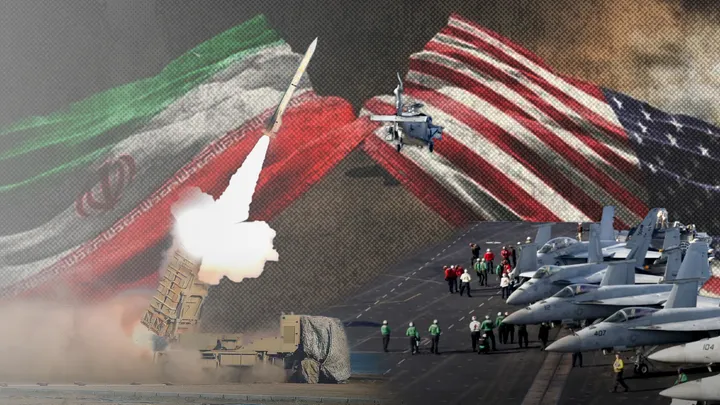The United States is scheduled to sign a new security pact with Papua New Guinea as it competes with China for influence in the Pacific.
The State Department said on Monday the new agreement would provide a framework to help improve security cooperation, enhance the capacity of Papua New Guinea's defence force and increase regional stability.
Papua New Guinea's location just north of Australia makes it strategically significant. It was the site of fierce battles during World War II, and with a population of nearly 10 million people, it's the most populous Pacific island nation.
At a breakfast meeting, Papua New Guinea Prime Minister James Marape said his country faced significant security challenges, from skirmishes within the country to illegal fishing boats that light up the night like skyscrapers.
“We have our internal security as well as our sovereignty security issues,” Marape said. “We're stepping up on that front to make sure our borders are secure.”
But the agreement sparked student protests in the second-largest city, Laex And many in the Pacific are concerned about the increasing militarisation of the region.
Student Naomi Kipoi, 17, said she was opposed to the security pact because it would mean the US could come to her country whenever it pleased without permission.
“The US didn't help us with aid and other things,” Kipoi said. “They're just trying to sign the agreement.”
Is the US a reliable partner?
Last year, nearby Solomon Islands signed its own security pact with China, a move that raised alarm throughout the Pacific.
Meanwhile, the US has increased its focus on the Pacific, opening embassies in Solomon Islands and Tonga, reviving Peace Corps volunteer efforts, and encouraging more business investment.
But some have questioned how reliable a partner the US is in the Pacific, particularly after President Joe Biden canceled his plans to make a historic stop in Papua New Guinea to sign the pact.
US Secretary of State Antony Blinken traveled in Biden's place, arriving in Papua New Guinea early on Monday. In response to news of Blinken's impending visit, China warned against the introduction of “geopolitical games" into the region.
Militarisation of the Pacific
In a sign of the intensifying rivalry over the South Pacific, Blinken was not alone in representing major powers in Port Moresby, where the deal is to be signed.
Indian Prime Minister Narendra Modi flew into town just hours before him on the eve of a summit Monday with 14 South Pacific island states, asserting his nation's role as a regional power in the face of China's growing influence.
"We share your belief in multilateralism. We support a free, open, and inclusive Indo-Pacific. We respect the sovereignty and integrity of all countries," Modi told Pacific leaders in opening remarks.
Blinken will meet those same South Pacific leaders. Earlier, he met with New Zealand Prime Minister Chris Hipkins and said the two nations had a shared vision for the region.
Hipkins told Blinken he was very happy that Blinken had made the trip but also drew a distinction to his own nation's efforts.
“We are not interested in the militarisation of the Pacific,” Hipkins told reporters before the Blinken meeting. “We are interested in working with the Pacific on issues where we have mutual interest. Issues around climate change. And we’re not going to be attaching military strings to that support.”























